Wylfa Newydd 'once in generation opportunity' worth £5.7bn
- Published
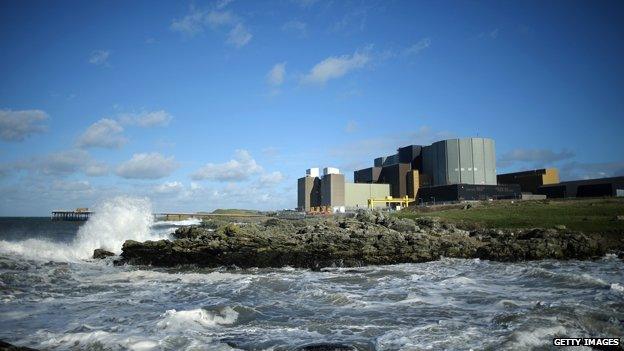
The old Wylfa reactor, which started operating in 1971, is due to stop generating power at the end of 2015
The nuclear power industry linked to the planned new Wylfa plant on Anglesey could be worth £5.7bn to the Welsh economy, says an independent report.
Research for the Welsh government, estimates investment and business opportunities over 20 years.
At its peak in six years time, 6,800 people would be building Wylfa Newydd, which will have a workforce of 875.
Economy Minister Edwina Hart said it was a "once in a generation opportunity".
Hitachi's Horizon project hopes to build two reactors and, if it gets the go ahead, to start producing electricity in the early 2020s.
Consultancy Miller Research, external has looked at the capability of businesses in Wales to respond to opportunities in the nuclear supply chain over the next 20 years.
The report says Wales could miss out on some of the benefits if businesses do not take advantage of the opportunities
Anglesey residents give their views on proposed new nuclear plant
As well as the wider economic value of building the new £14bn plant, it estimates the economic value of decommissioning the old power station, as well as the continuing decommissioning at Trawsfynydd in Gwynedd.
After Wylfa Newydd begins to generate electricity, it is forecast to contribute nearly £87 million in Gross Value Added (GVA) - the value of goods and services produced - each year.
'Concerted effort'
But the total GVA contribution to the Welsh economy from planning, building, operation and decommissioning is forecast to be £5.7bn between 2013 and 2033.
This represents 0.5% of total GVA in Wales over 20 years.

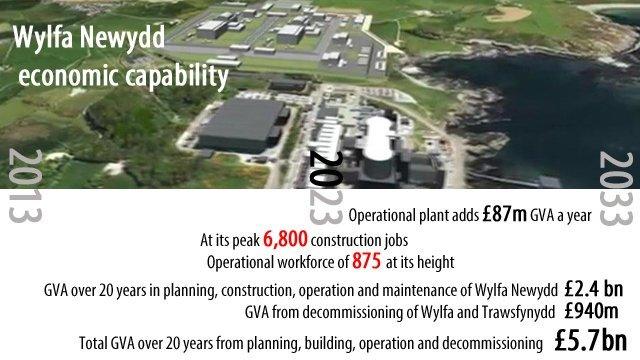

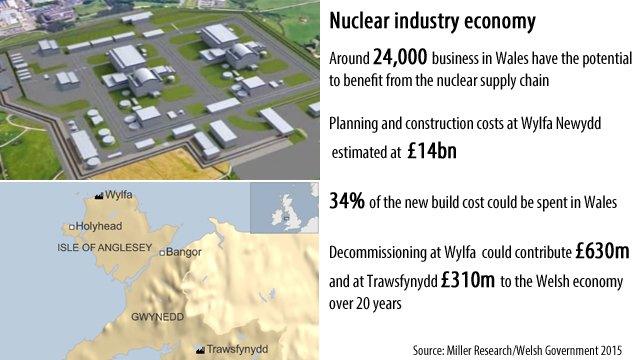

One college is already spending £20m on a new campus to help produce a workforce to build and run the plant.
But the report also cautions that Wales could miss out on some of the benefits if businesses fail to take advantage of the opportunities.
It said the nation needs to cash in on its skills in manufacturing of plant and equipment, electricity generation, low level waste disposal, engineering and environmental management.
Mrs Hart said: "A concerted effort is needed across the board - by businesses and industry and the public and private sectors if we want to ensure that as much of that investment as possible in spent in Wales."

Analysis: Brian Meechan, BBC Wales business correspondent
This is a clear call for businesses across Wales to be ready to take advantage if Wylfa Newydd gets the go-ahead.
As many as 24,000 firms could reap the reward, not just of building the new site and supporting its operation but also decommissioning the old ones.
But Welsh companies have missed out on winning contracts on big construction projects before including the Olympics.
That is why the message is clear that they have to be better prepared to take advantage this time.
The other issue is skills - which means universities and colleges have a major role in preparing a workforce that can capitalise on Wylfa Newydd.
Demand for skilled workers will increase as other construction projects will be under way at the same time including Hinkley Point C nuclear power plant.
Nuclear power remains controversial with critics warning that it is dangerous and damaging to the environment.
Supporters argue it gives us a secure energy supply in an uncertain world and is more reliable than the renewable alternatives such as wind and tidal power.

Brian Jones, vice chair of the Campaign for Nuclear Disarmament Cymru, said the claims of economic benefits were not surprising.
"If you spend £14bn on an area there will be benefits and jobs for the local population but we have choices about how we spend our money," he told BBC Radio Wales.
"The Swansea tidal lagoon has the potential for providing 90% of the energy needs of Swansea, will cost £1bn and will generate electricity for 120 years, which is twice as long as Wylfa Newydd is planned for.
"We could afford 15 or more tidal lagoons across the UK for the same price."
- Published9 January 2015
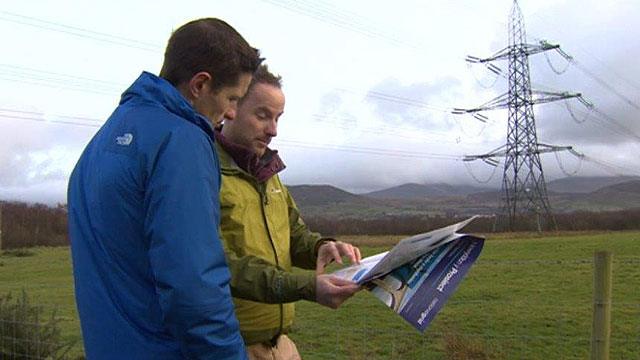
- Published25 July 2014
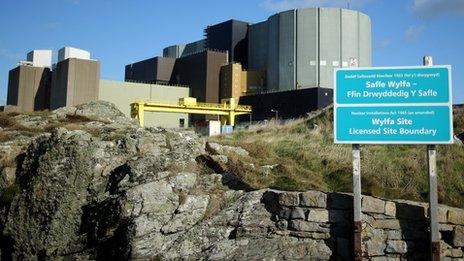
- Published12 February 2015
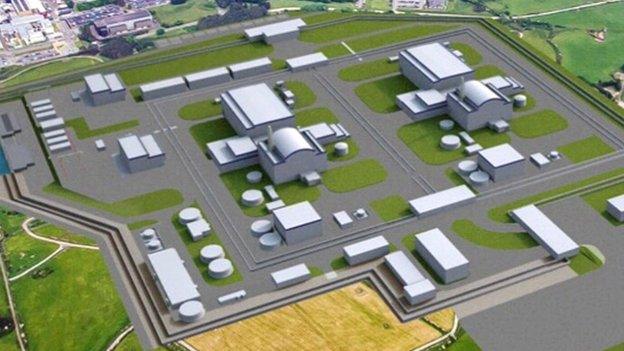
- Published10 March 2015
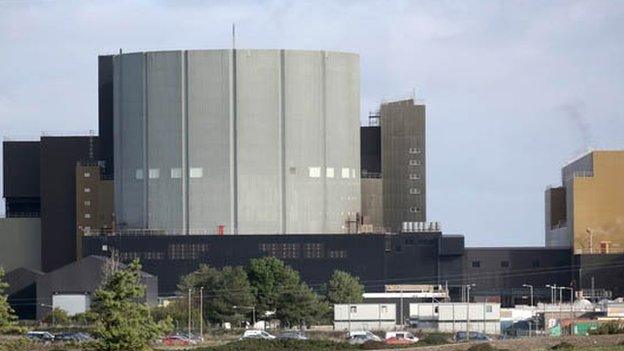
- Published29 September 2014
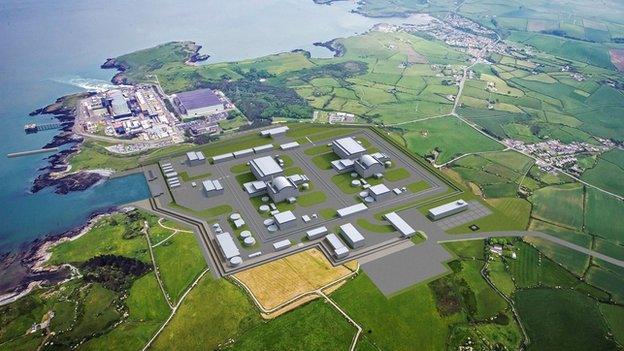
- Published17 February 2015
